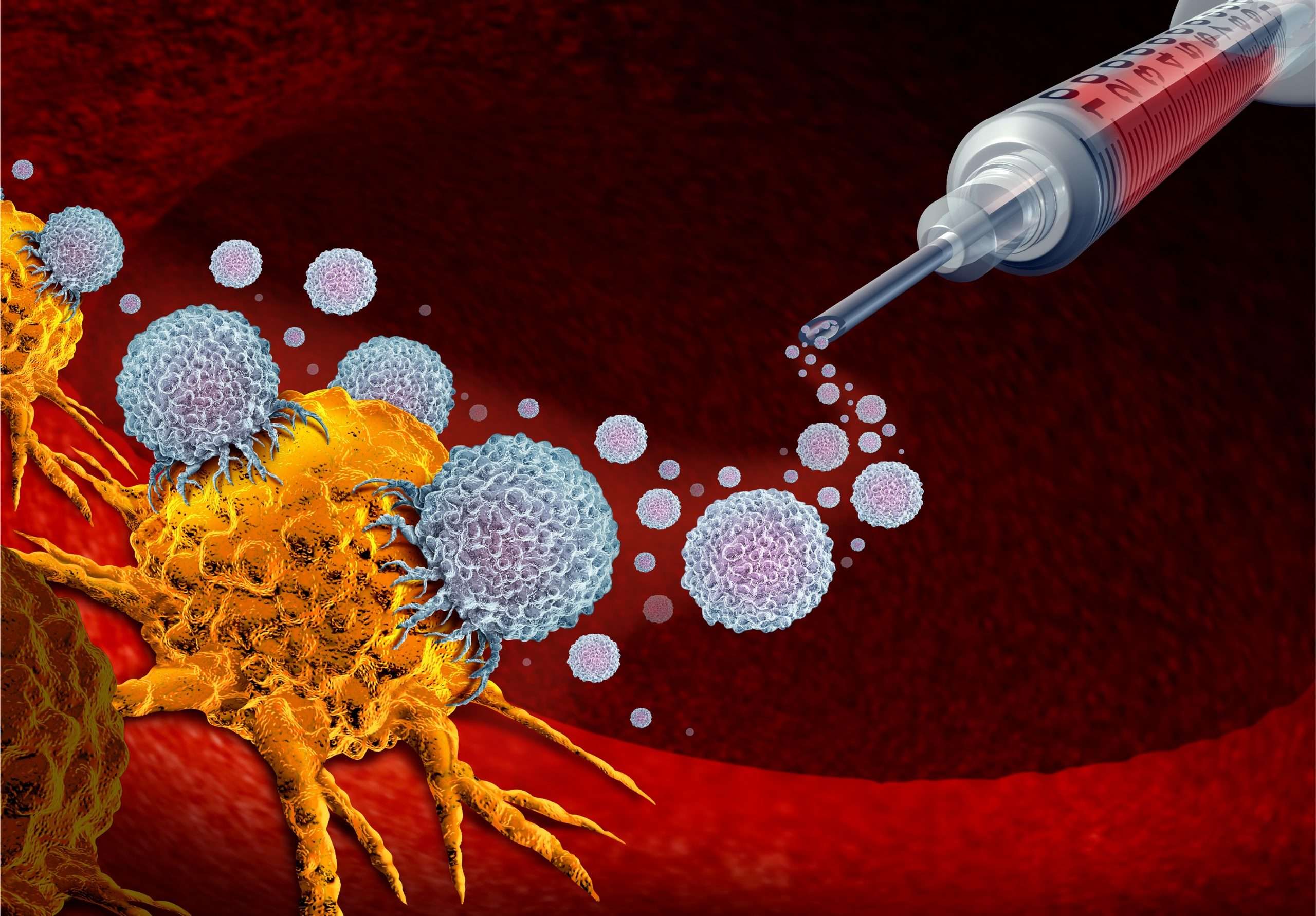FDA approves cilta-cel for adult patients with R/R multiple myeloma after at least one prior line of therapy
On April 5th, 2024, the U.S. Food and Drug Administration (FDA) granted approval to ciltacabtagene autoleucel (cilta-cel), a B-cell maturation antigen (BCMA)-directed CAR-T therapy, for the treatment of patients with relapsed/refractory (R/R) multiple myeloma who have received at least one prior line of therapy and are refractory to lenalidomide.1 This marks the first CAR-T cell product to be approved for patients who relapse following first-line treatment.
Cilta-cel was first approved in February 2022 in patients with R/R myeloma after four or more prior lines of therapy.2 The FDA’s decision to approve this agent in earlier lines was based on data from the Phase III CARTITUDE-4 trial (NCT04181827). Results from this trial, which were presented at the 2023 ASCO Annual Meeting, demonstrated that earlier administration of cilta-cel resulted in a reduced risk of disease progression or death compared with other standard therapies (pomalidomide, bortezomib and dexamethasone [PVd] or daratumumab, pomalidomide and dexamethasone [DPd]).1,3
Progression-free survival (PFS) at 12 months was 75.9% (95% CI, 69.4 to 81.1) in the cilta-cel arm and 48.6% (95% CI, 41.5 to 55.3) in the standard-of-care (SoC) arm. At a median follow-up of 15.9 months, the median PFS was not yet reached in the cilta-cel arm and was 11.8 months in the SoC arm. The overall response rate (ORR) was higher in the cilta-cel arm than the SoC arm (84.6% versus 67.3%). Measurable residual disease (MRD) negativity at any time during the trial was higher in the cilta-cel arm compared with the SoC arm (60.6% versus 15.6%), and overall survival (OS) data were immature at the time of data cut-off. Regarding safety, the most common adverse event (AE) was cytokine release syndrome (CRS), which occurred in 76.1% of patients (grade 3 or 4, 1.1%; no grade 5), followed by immune effector cell-associated neurotoxicity syndrome (ICANS), which occurred in 4.5% of patients (all grade 1 or 2).3
At the 2024 EBMT-EHA 6th European CAR T-cell Meeting, we caught up with Hermann Einsele, MD, FRCP, University of Würzburg, Würzburg, Germany, who shared his insights on the value of bringing CAR-T therapy to earlier lines in multiple myeloma. Prof. Einsele stated, “I think CARTITUDE-4 and also KarMMa-3 have nicely shown that with earlier treatment you can be even more effective, and in CARTITUDE-4 it was actually 99.4% of patients responding to CAR T-cells and 86% achieving a complete remission. I think that’s a response quality and response rate we have never seen before in myeloma.”
The expanded use of cilta-cel to earlier lines marks a paradigm shift in the myeloma treatment landscape, and it is hoped that this approval will greatly improve patient access to this therapy.
References
- Johnson&Johnson. CARVYKTI® is the First and Only BCMA-Targeted Treatment Approved by the U.S. FDA for Patients with Relapsed or Refractory Multiple Myeloma Who Have Received at Least One Prior Line of Therapy. Available here. (Last accessed 10/04/2024).
- U.S. Food and Drug Administration. FDA approves ciltacabtagene autoleucel for relapsed or refractory multiple myeloma. Available here. (Last accessed 10/04/2024).
- San-Miguel J, Dhakal B, Yong K, et al. Cilta-cel or Standard Care in Lenalidomide-Refractory Multiple Myeloma. New England Journal of Medicine. 2023 Jul 27;389(4):335-347.
Written by Anya Dragojlovic Kerkache
Edited by Raffaella Facchini












